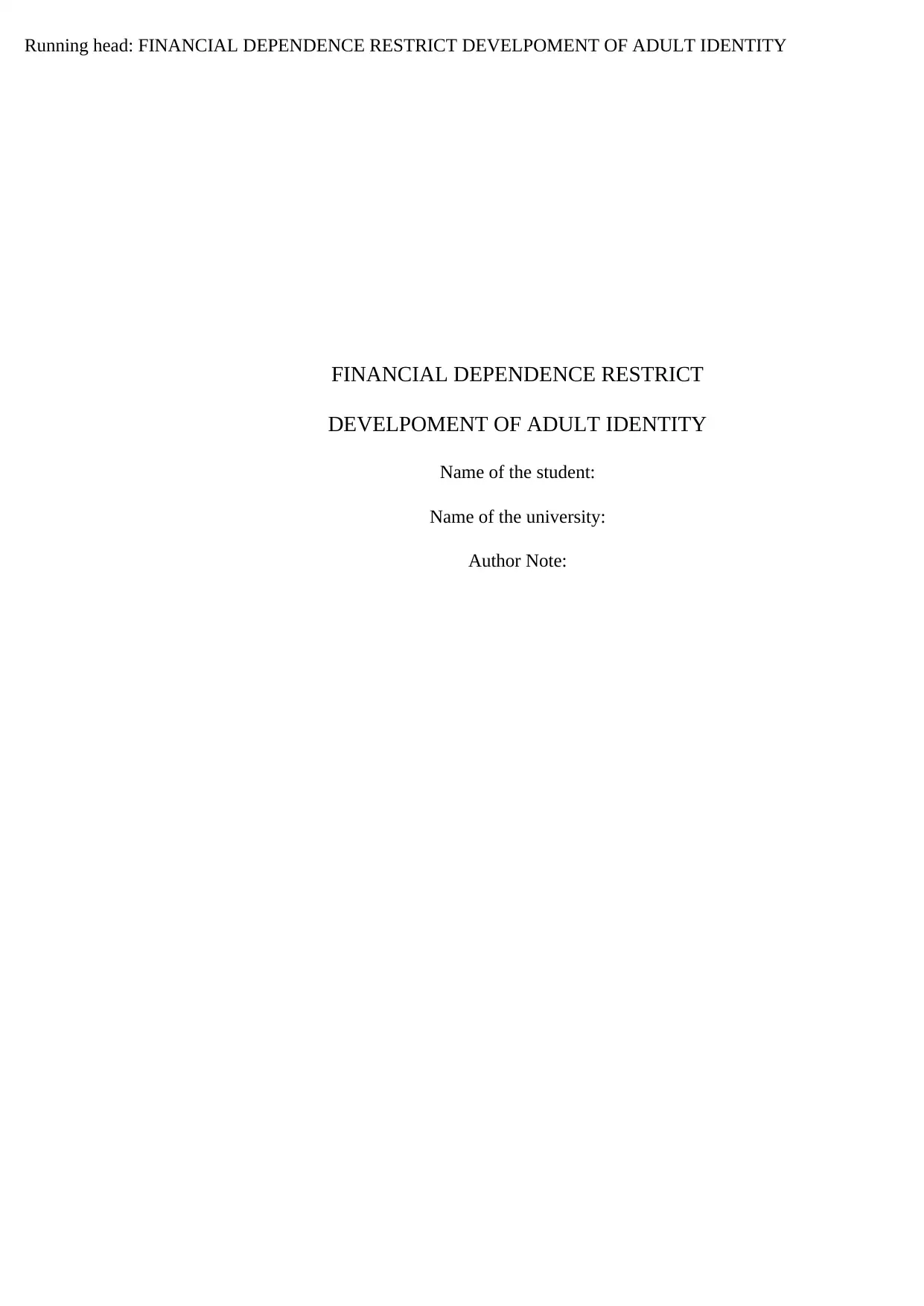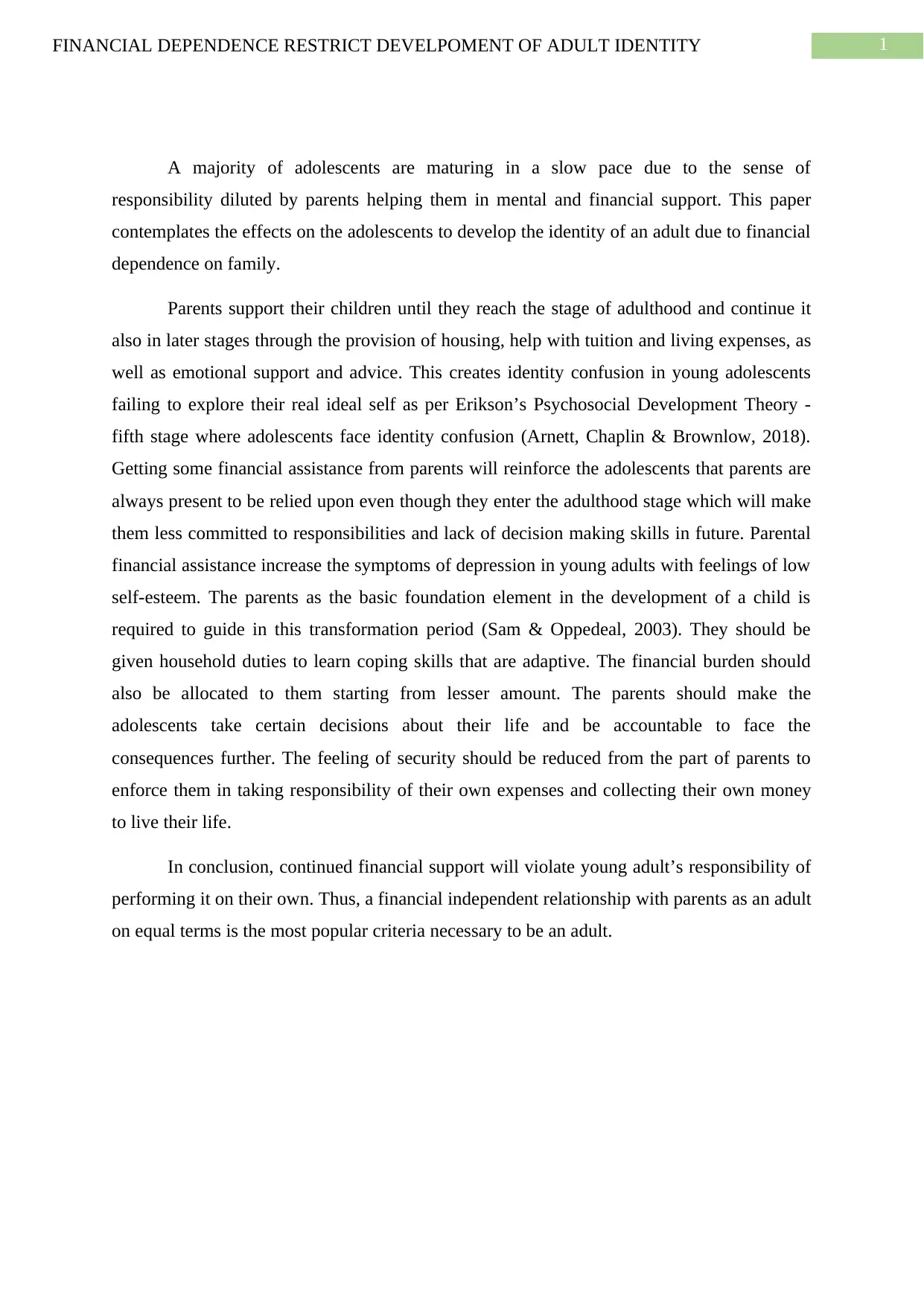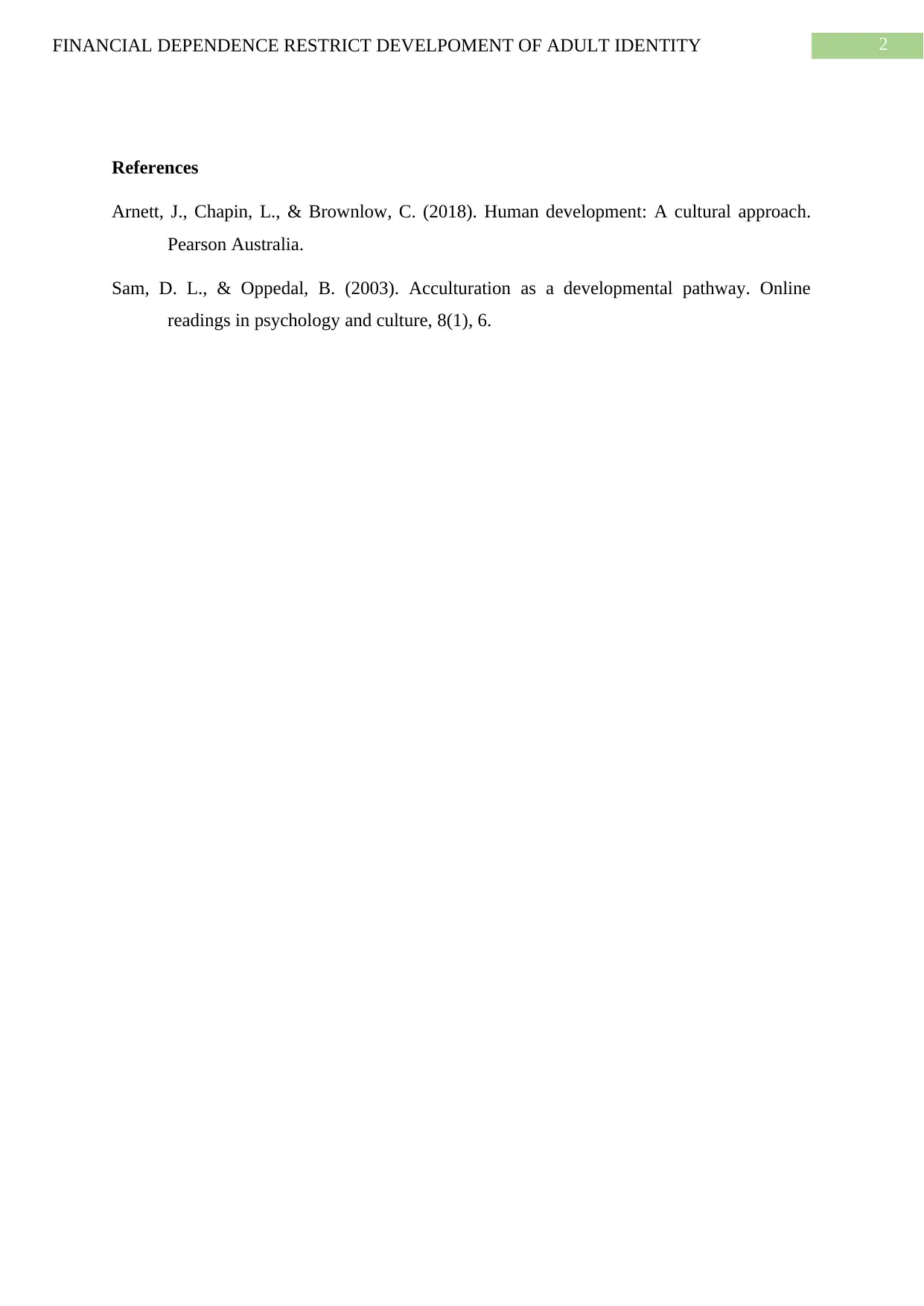The Impact of Financial Dependence on Adult Identity Formation
VerifiedAdded on 2022/08/26
|3
|451
|17
Report
AI Summary
This report examines the impact of financial dependence on the development of adult identity, focusing on the challenges faced by adolescents. It explores how parental financial support can hinder the development of crucial skills and responsibilities necessary for adulthood, such as decision-making and coping with financial burdens. The report references Erikson's theory of psychosocial development to highlight the importance of identity formation during adolescence and discusses the negative effects of continued financial dependence, including potential impacts on self-esteem and mental health. It suggests strategies for parents to foster independence, such as assigning household duties and gradually shifting financial responsibilities to encourage the development of essential life skills and ultimately, a stronger sense of self. The conclusion emphasizes the importance of financial independence for young adults to take on responsibilities and become successful in their life. References are provided from the field of developmental psychology.
1 out of 3






![[object Object]](/_next/static/media/star-bottom.7253800d.svg)